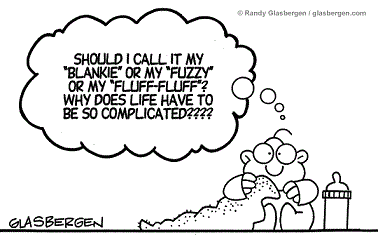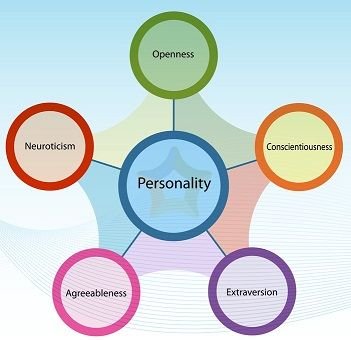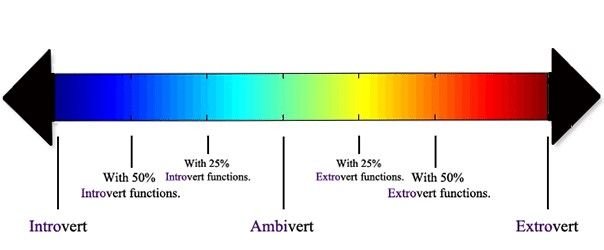
What is personality?
The term ‘personality’ was defined and popularised by Gordon Alport, an early authority on the subject. But, for the sake of keeping things simple his dense definition is going to be avoided within the post; and instead, personality will be described as the set of qualities and characteristics typical of an individual. Basically, those traits that are stable and enduring throughout a person’s life, for example: being outgoing, a worrier, methodical and so forth.
What are the reasons for studying personality?

Personality theorists seek out to understand what drives human nature; which inevitably touches on the issues of the basic nature of human beings. Are we a malevolent or benign species?
One prominent personality theorist who believed humans as a species are innately aggressive and self-destructive was Sigmund Freud (you might have heard of him). Fortunately, not everyone shared this rather bleak view about the fundamental basis of human nature. Carl Rogers - one of the founders of counselling psychology - perceived humans as a benign species driven by positive motives towards acceptance and growth.
The study of personality, however, does not only address questions about human nature. Psychologists in this field also explore what motivates behaviour; for example: Why do people do the things they do? Why do different people react differently in similar situations? The latter question is often brought up in the categorization of personality; an area of psychology that not only describes personality, but also measures it. Here, the central idea is that patterns of behaviour are both limited and present in individuals who share similar traits.
In other words, there is only a restrict number of ways people will react to and interact with the environment and others. Those under the same classification will, therefore, carry out similar patterns of behaviour.
Classifying & Measuring Personality

The classification and measurement of personality contributes to the understanding of abnormal behaviour, mental illnesses, and also; on a less gloomy note, it works as a good indicator of how financially secure someone is likely to be, how promiscuous, generally unhappy or satisfied in life. Psychologists argue that these are outcomes much more accurately predicted through the classification and measurement of personality traits than through age and social class.
So, how to go about doing this?
There isn’t a fix set of personality dimensions generally agreed upon among all psychologists and psychiatrists. Nevertheless, there are some which are widely recognised: agreeableness,openness,conscientiousness; with neuroticism(N) and extraversion(E) definitely being the most widely accepted ones.
| Classification | High on the scale | Low on the scale |
|---|---|---|
| Agreeableness | cooperative | hostile |
| Openness | into abstraction | practical |
| Conscientiousness | methodical | inattentive |
| Neuroticism | anxious | stable |
| Extraversion | outgoing | self-contained |
Together these personality dimensions are known as the Big Five.
According to some psychologists these dimensions fit the limited set of human behaviour, interactions and reactions.
Why dimensions?

The way the classification works is not a “in” or “out” of the box system. Rather, when thinking of any of the big five classifications one has to imagine a scale, let’s say from 0 to 10. Two individuals might both fall under the neuroticism dimension; although, it doesn’t necessarily mean they are equally neurotic.
There is no one personality better than the other. For example, individuals who score high on the neuroticism scale can become highly successful as they are very likely to strive hard in order to avoid failure. At the same time, people with low score in the extrovert dimension are happy with delayed gratification. However, it is important to always strive for balance.
More and more psychologists agree that these traits are a manifestation of inherited features and learning outcomes. This means personality is not seen as fixed and it can certainly be improved in most cases.
If you feel like it, leave a comment!
[Original content by Abigail Dantes 2017]

Reference
Day, L.,Macaskill, A.,Maltby, J.,(2010), Personality, Individual Differences and Intelligence, London, Pearson.

Nice explanation. I am definitely high in neuroticism and openness and low in extraversion.
Hi @timspeer, it is alway great to have your comments on my posts, thank you for taking the time to do it. I just hope you don't see your high score in neuroticism and low score in extraversion as negative in general, as it is normally the case among the general public. I am sure it is not easy all the time, but it certainly doesn't have to be all bad. One aspect I really respect on people who score low in extroversion is their ability to appreciate delayed gratification.
I don't see where nuttbag is part of this equation. In truth the older I get the more I find that my energy is limited. I am not so sure that personality is constant, but may indeed change with hormone levels etc. Good work! I love seeing what others have to say about this. What about yourself? 🐓🐓
I don't believe personality is fixed, but this is not to be confused with mood. Hormones are more likely to affect our mood, rather than our personality! As for me ... good question! I am a very methodical person, from time to time a worrier and generally practical. But, please beware, oftentimes we see ourselves differently from how others perceive us! So, don't quote me on this! 😅
Lots of love.Hello @mother2chicks ❤️😊,
This article made me smile as I have just started the course 'individual differences' for my psychology masters and the Maltby book is one of the core texts
Thank you for stopping by and sharing this beautiful gif!
All the best for you with your studies and here on Steemit!
:)Oh! @richardingate! There you go ... Ahahaha ... that is a GREAT book!
Understanding personality is so important. I've been studying it for a while. It allows for a helpful framework when dealing with people. And, best of all once you truly understand your own, it's easy to give yourself grace but at the same time, not use it as an excuse. Missed seeing you around. Like I said, you make me think. I like that! Love ya, sista!
Lots and lots of love 😘Oh! I love this insight @karencarrens!
Thank you for sharing this. This helps a lot, most especially that I'm in an industry that handles customer service. Double Thumbs-up!
Upvoted. Followed and Resteemed.
Thank you @dante01 🙂
Nice work again! The most useful book of that kind for me was "Psychological Types" by C.G. Jung. And my favorite group of people are the melancholic introverts, because they thinks more for fantasy worlds and are near to "the other side". The artists of that type are my idols, hehe :)
Oh! Cal Jung ....
Yes! Dostoyevsky is the first one that spring to mind as a melancholic, introspect... LOVE HIM!
One of these days I will ask you to marry me @godflesh! :D
@abigail-dantes, stop this kind of joke with me, you are making me blush :D
And I think maybe you are not right about Dostoyevsky... he is not the first melancholic wirter... In my opinion it is the book of Goethe - "Sorrows of Young Werther" and the romanticism starts with it. And as a melancholic author maybe William Blake or maybe Francesco Petrarca? I think with Petrarca starts the malencholia in literature, because in that period the individuality begins to develop. Or in the romantic period for sure like Novalis or Keats and then comes Dostoyevsky :D And in russian literature I don't know who i prefer more - him or Gogol, or Nabokov, or ... or. But Dostoyevsky is maybe the only one or both with Nietzsche, who depress me the most and I feel so good with that. :D
I honestly never thought about personalities until my children got a little bigger. My son is almost 7 and my daughter is 4, and their personalities are starkly different.
Both are apprehensive towards strangers, but my son is the life of the party once he gets comfortable around strangers. My daughter is more of the shy type.
My daughter is also quite aggressive and has a temper, where my son is the more docile and agreeable of the two.
My son does not lie, even if it gets him in trouble, which I admire deeply. My daughter...she will throw something at you, with you watching, and then deny it ever happened...
It's interesting how different they are, and at the end of the day, they get along wonderfully. If only they would pick up their toys...
Good luck with the toys ... Ahahahaha :)I love your comment @coffeecoffee, thank you so much! It is very, very interesting observing children's personalities. I found your account simply fascinating, specially considering the differences you brought up. We like to think siblings experience the same things and therefore should have similar learning outcomes, but in reality it isn't that straight forward!
Abigail, you should write a continuation post with the big 7 personality traits too. :) Upvoted, followed and resteemed.
Dark Triad :D I will see ... Thank you for stopping by!
I see you are failry new here. Good luck on your Steemit journey!
Best!Hi @steemith , good one! Although, I thought my next post should be about the
I'm a fresh fish indeed, getting my head around it. :)
Enjoyed the read!@abigail-dantes Thanks. I look forward to reading that.
you are back!
😘
This is a wonderful post, personality is something everyone has but we don't alwalys understand it, this is such a good post explaining. Thank you so much for sharing it with us.
I really appreciate it!
Best :)Hello @bigbear 😊, I am so pleased to hear you liked my post. Thank you so very much for taking the time to read and leave such a postive, encouraging comment.
I think this is where psychology and economics overlap. The big book on econ is Mises' "Human Action" and it looks at how every economic exchange is precipitated by a decision to act. But what makes one person act and another not? An economist might tell you incentives, or perceived incentives... some would tell you it's a simple lack of information. But these aspects of personality seem crucial, as well, especially in determining how a person will perceive his environment and incentives it contains.
It is a fascinating debate.
All the best!This is a superb comment @geke. I love all the info you add to the topics discussed on my posts. Thank you so much! Yes, Stiglitiz would say that lack of information is a factor that plays a major role in decision making when it comes to the world of finances. While Milgram states that who the individual is has little to do with how he is going to react to the situation he /she finds himself/herself in!
Very interesting analysis on personality. We are all so different and I love seeing research like this!
Thank you @brian.rrr :)
relaxing can take us without any problems.
I really like
Please follow mE
@minnowpond1 has voted on behalf of @minnowpond. If you would like to recieve upvotes from minnowponds team on all your posts, simply FOLLOW @minnowpond.
To receive an upvote send 0.25 SBD to @minnowpond with your posts url as the memo To receive an reSteem send 0.75 SBD to @minnowpond with your posts url as the memo To receive an upvote and a reSteem send 1.00SBD to @minnowpond with your posts url as the memo@eileenbeach has voted on behalf of @minnowpond. If you would like to recieve upvotes from minnowponds team on all your posts, simply FOLLOW @minnowpond.
To receive an upvote send 0.25 SBD to @minnowpond with your posts url as the memo To receive an reSteem send 0.75 SBD to @minnowpond with your posts url as the memo To receive an upvote and a reSteem send 1.00SBD to @minnowpond with your posts url as the memoCongratulations @abigail-dantes! You have completed some achievement on Steemit and have been rewarded with new badge(s) :
Click on any badge to view your own Board of Honor on SteemitBoard.
For more information about SteemitBoard, click here
If you no longer want to receive notifications, reply to this comment with the word
STOPThis post recieved an upvote from minnowpond. If you would like to recieve upvotes from minnowponds team on all your posts, simply FOLLOW @minnowpond.
To receive an upvote send 0.25 SBD to @minnowpond with your posts url as the memo To receive an reSteem send 0.75 SBD to @minnowpond with your posts url as the memo To receive an upvote and a reSteem send 1.00SBD to @minnowpond with your posts url as the memoInteresting to know how personality is scaled or being categorized.
Your article is great proof that there is a lot of things that are not about one answer. It is about the way to get answers. Like everything in psychology. It depends.
I like the way you try to explain that there is no such a thing like better personality!
The regulative theory of temperament by Strelau is great example!